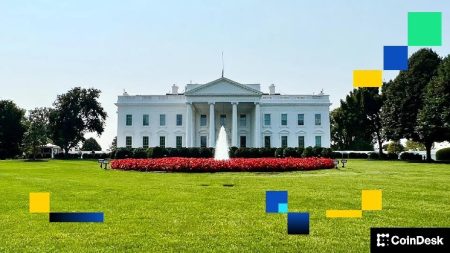Global Markets Tumble as Trump Threatens “Massive Tariff Increase” on Chinese Imports
Geopolitical Tensions Trigger Market Sell-Off Across Traditional and Cryptocurrency Sectors
In a dramatic turn of events that sent shockwaves through global financial markets, former U.S. President Donald Trump’s threat of implementing a “massive tariff increase” on Chinese imports has triggered widespread volatility across both traditional and digital asset classes. The announcement, made via Trump’s social media platform Truth Social, sparked immediate concern among investors worldwide, leading to one of the most significant market downturns in recent months.
Trump claimed that China was preparing to impose export restrictions on rare earth elements and other critical manufacturing components, which he suggested could necessitate an “unprecedented tax increase” in retaliation. These rare earth elements, which include materials like neodymium, yttrium, and lanthanum, are crucial components in manufacturing everything from smartphones and electric vehicles to military equipment. The potential disruption to global supply chains caused by such restrictions has raised alarm bells among manufacturers and investors alike, who fear the ripple effects across industries dependent on these resources.
Traditional Markets React Swiftly as Investor Confidence Wavers
The repercussions of Trump’s announcement were felt almost immediately in traditional financial markets, with major U.S. indices experiencing significant declines. The technology-heavy NASDAQ 100 index plummeted 2.4%, reflecting particular vulnerability in the tech sector, which relies heavily on components that could be affected by the proposed tariffs and potential supply chain disruptions. Similarly, the broader S&P 500 index fell 1.7%, indicating a market-wide reaction to the heightened geopolitical tensions.
Market analysts suggest that this sharp decline reflects not just immediate concerns about trade policy, but deeper anxieties about the potential for an escalating trade war between the world’s two largest economies. “What we’re seeing is the market pricing in not just the immediate impact of tariffs, but the potential for a prolonged period of trade uncertainty,” explained Dr. Elaine Wu, chief market strategist at Global Investment Partners. “Investors remember all too well the volatility that characterized markets during previous U.S.-China trade disputes, and they’re positioning themselves defensively in anticipation of similar patterns emerging.”
Cryptocurrency Markets Mirror Traditional Finance Downturn with Massive Liquidations
The cryptocurrency market, often touted by proponents as a potential hedge against traditional financial market volatility, demonstrated once again its increasing correlation with conventional asset classes. Bitcoin (BTC), the flagship cryptocurrency and largest by market capitalization, declined 1.94% to trade at $119,005 following the announcement. Ethereum (ETH), the second-largest cryptocurrency, experienced an even steeper fall, dropping 4.82% to $4,115, while BNB saw a comparatively modest decrease of 1.08%, settling at $1,223.
The sell-off extended across the broader cryptocurrency ecosystem, affecting almost all major tokens. Solana (SOL), a blockchain platform known for its high throughput capabilities, fell 3.33% to $211. Meanwhile, Dogecoin (DOGE), the meme-inspired cryptocurrency that has gained significant popularity in recent years, dropped 2.75% to $0.23, and TRON (TRX) declined by 1.36% to $0.33. The market-wide downturn resulted in staggering liquidations totaling over $896 million within a 24-hour period, with long positions—bets on price increases—accounting for more than 80% of these forced closures.
Market Dynamics Reveal Deeper Connections Between Geopolitical Events and Financial Stability
The synchronized decline across diverse asset classes highlights the increasingly interconnected nature of global financial markets and their sensitivity to geopolitical developments. Financial experts point to several factors contributing to this phenomenon, including the growing integration of cryptocurrency markets with traditional finance, the expanding presence of institutional investors across both sectors, and the role of algorithmic trading systems that can rapidly amplify market movements.
“What we’re witnessing is further evidence that cryptocurrency markets are maturing and becoming more integrated with the broader financial ecosystem,” noted Maria Santorini, Director of Digital Asset Research at Financial Frontier Institute. “These markets are increasingly responding to the same fundamental factors that drive traditional markets—economic data, central bank policies, and as we’re seeing today, geopolitical developments.” This integration challenges the narrative that cryptocurrencies function as completely independent asset classes, suggesting instead that they may be subject to many of the same systemic risks that affect traditional investments, particularly during periods of heightened market stress or uncertainty.
Implications for Global Trade, Manufacturing, and Long-Term Investment Strategies
The potential implementation of new tariffs and export restrictions raises profound questions about the future of global trade relations and manufacturing supply chains. Rare earth elements, which were specifically mentioned in Trump’s announcement, play a critical role in modern technology manufacturing. China currently dominates the global supply of these materials, controlling approximately 85% of the processing capacity worldwide. Any disruption to this supply could have far-reaching consequences for technology companies, automakers, and defense contractors, among others.
For investors, the current market volatility presents both challenges and potential opportunities. While short-term uncertainty may persist, long-term investment strategies may need to be recalibrated to account for changing trade dynamics and potential shifts in global supply chains. Some analysts suggest that increased domestic production of critical materials, diversification of supply sources, and investments in recycling technologies may become priorities for both businesses and governments seeking to reduce dependence on potentially restricted imports. As markets continue to digest these developments, investors across both traditional and cryptocurrency sectors are advised to maintain diversified portfolios and consider the potential long-term implications of evolving trade policies rather than reacting impulsively to short-term market fluctuations.
This article does not constitute investment advice and is provided for informational purposes only. Investors should conduct their own research and consult with financial advisors before making investment decisions based on market developments.















